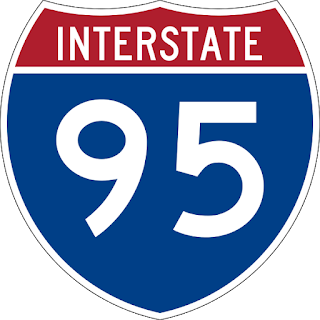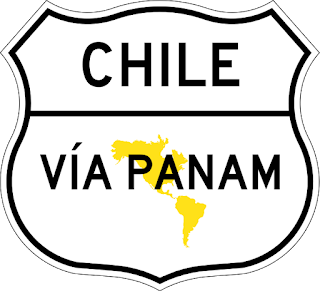Part of A Series: Route 66: Sufjan Stevens: Illinois
To View the whole series as one LONG post CLICK HERE
Concerning the UFO Sighting Near Highland, Illinois/Sufjan Stevens: Illinois Track One:
The next track is Jacksonville. It is a fairly straightforward story of the town told in the usual Stevens blurred impressionistic lyrics:
I'm not afraid of the black man running
He's got it right, he's got a better life coming
I don't care what the captain said
I fold it right at the top of my head
I lost my sight and the state packs in
I follow my heart and it leads me right to Jackson
Oh, Keller, oh, oh, oh
She gave us a medal she gave us a map
Oh, Canner Row, oh, oh, oh
If seeing is right, then look where you're at
I'm not afraid of Nichol's Park
I ride the train and I ride it after dark
I'm not afraid to get it right
I turn around and I give it one more try
I said things that I meant to say
The bandstand chairs and the Dewey Day parade
I go out to the golden age
The spirit is right and the spirit doesn't change
Oh, Keller, oh, oh, oh
She gave us mirror she gave us a map
Oh, Canner Row, oh, oh, oh
If seeing is right then look where you're at
Andrew Jackson, all I'm asking
Show us the wheel and give us the wine
Woohoo! Woohoo!
Raise the banner, Jackson hammer
Everyone goes to the capitol line
Woohoo! woohoo!
Colored preacher, nice to meet you!
The spirit is here and the spirit is fine!
Woohoo! Woohoo!
Education, ask the nation
You gave us our sight and the hearing is fine
Woohoo! woohoo!
Andrew Jackson all I'm asking
Give us the wheel and give us the wine
He's got it right, he's got a better life coming
I don't care what the captain said
I fold it right at the top of my head
I lost my sight and the state packs in
I follow my heart and it leads me right to Jackson
Oh, Keller, oh, oh, oh
She gave us a medal she gave us a map
Oh, Canner Row, oh, oh, oh
If seeing is right, then look where you're at
I'm not afraid of Nichol's Park
I ride the train and I ride it after dark
I'm not afraid to get it right
I turn around and I give it one more try
I said things that I meant to say
The bandstand chairs and the Dewey Day parade
I go out to the golden age
The spirit is right and the spirit doesn't change
Oh, Keller, oh, oh, oh
She gave us mirror she gave us a map
Oh, Canner Row, oh, oh, oh
If seeing is right then look where you're at
Andrew Jackson, all I'm asking
Show us the wheel and give us the wine
Woohoo! Woohoo!
Raise the banner, Jackson hammer
Everyone goes to the capitol line
Woohoo! woohoo!
Colored preacher, nice to meet you!
The spirit is here and the spirit is fine!
Woohoo! Woohoo!
Education, ask the nation
You gave us our sight and the hearing is fine
Woohoo! woohoo!
Andrew Jackson all I'm asking
Give us the wheel and give us the wine
Jacksonville, is a smallish college town in Illinois that also had a history as as stop on the under ground railroad. From Wikipedia:
The town was named in 1825 for future president Andrew Jackson, the commander of American forces at the Battle of New Orleans (1815) and presidential hopeful in 1824.[3][4]
By the time Jacksonville was platted with roads and a town square, the first resident, Alexander Cox, was joined by merchants Joseph Fairfield and George Hackett.[3]
Construction of civic buildings began quickly. Construction of the first college building began in 1829 before Illinois College actually had a faculty or students. The courthouse was built on the square, and eleven lawyers and ten physicians were in practice by 1834. Since Illinois settled from the south toward the north, with the majority of early settlers coming from southern states, there was a time when Jacksonville was the largest town in the state.[3] As late as 1840, Morgan County was the most populous county in Illinois.
The city arranged to be the site of the Illinois School for the Deaf and the School for the Blind.[3]
In 1851, Illinois opened its first state mental hospital in Jacksonville, which was a major employer for the area.[5] The institution, now named the Jacksonville Developmental Center, serves developmentally challenged individuals.[6]
Abraham Lincoln occasionally had legal business in Jacksonville, frequently acting either as co-counsel or opposing counsel with David A. Smith, a Jacksonville resident.[7] In what is now Central Park Plaza, Lincoln delivered a very strong antislavery speech in support of the presidential campaign of John C. Frémont over the course of two hours on September 6, 1856.[8] A mural depicting the event is now painted on the side of a building at the southwest corner of the Park.[9] Jacksonville was a major stopping point on the historic Underground Railroad. An Annual Civil War reenactment celebration is named for Jacksonville resident U.S. Army General Benjamin Grierson.
The song begins with the image of a black man, a slave, running towards freedom on the underground railroad. It name drops many references related to the city before ending with a reference to a local urban legend that the city was named for a black preacher named Jackson, rather than Andrew Jackson. More on the references in the lyrics from Songmeanings.com:
General Comment:OK, I'm going to try to make this as comprehensive as possible, so it'll be a little repetitive.
In this song specifically, I think the lyrics are meant to be a little ambiguous for the purpose of wordplay.
This first four lines obviously reference the Underground Railroad, supported by some staunch abolitionists in the town i.e. the brother of Harriet Beecher Stowe, who would also serve as the first president of the Illinois College. At the same time, though, the third and fourth lines seem to reference another story - that of Andrew Jackson Smith, a runaway slave and medal of honor recipient from the American Civil War. He carried his regiments colors through heavy fire after their color-man was killed (i.e. despite what the captain said).
Another interesting wordplay in heart in the sixth line. Jacksonville is revered for its rich history for progress, the site of the state's first medical school, and geographically in the center of the state.
The Keller reference most likely references Helen Keller, connecting her to the deaf and blind school in Jacksonville. She was awarded the presidential medal of freedom, and asserted in her acceptance speech that the blind and deaf are not freaks but like any other (maybe a road map).
I simply have no idea on the Cannery Row line. Steinbeck documents the lives of those on Cannery Row in Monterrey in both "Cannery Row" and "Sweet Thursday." The canneries all failed with the collapse of the area's fishing industry in the 50's. Perhaps there is a parallel to the depletion of agricultural resources.
I think "giving it one more try," could possibly refer to the large corrections facility in Jacksonville, despite a small population.
I'm not sure about the Dewey line, but the phrase Golden Age has roots in Greek mythology as an ideal state of utopia.
The second line about Keller is different, saying mirror instead of medal. In her life, Helen Keller wrote two autobiographies, the first called "The World in Which I Live," and second called "Light in my Darkness," a stretch, but possibly a mirror and a map.
The wheel probably does refer to the cheese, but I think it is once again a pun. Jacksonville is also home to the Eli Bridge Company, a maker of Ferris wheels.
For Jackson Hammer, I know that Stonewall Jackson was called the hammer of the confederate army. Furthermore, there was an Illinois court case in 1995 entitled Jackson v. Hammer, ruling on non-compete clauses, recovery of attorney fees, and the differences in standards for large and small businesses. Not sure if any of that matters though.
Capital line could relate to Jacksonville's shortly lived shot at the state's capital, or its place as residence to what was formerly capitol records.
The story about the colored preacher is funny: The slave of Thomas Clark was lost in the prairie grass on the way to Diamond grove, until he saw the surveyors laying out what would soon be Jacksonville. He said he was lost and asked how to get to Diamond Grove. They directed him and asked his name. He replied "A. W. Jackson." They replied that they were laying out a town and because he was the first of his race in the area, they would name the town after him. The similarity in names of the boy and the soon to be president probably was the reason for the surveyor's private little joke. Regardless, he was the first black alderman of the town.
For education, Jacksonville is called the "Athens of the West," because it retains such a focus on education with so few people, both now and in history.
These are my best guesses.
manly519on January 25, 2008
This song doesn't move me as much as some of his others so I will abstain from any major analysis. My biggest question being: what does Cannery Row have to do with anything? That would fit in more with my Sunday Highway 101 series, but I fail to see the connection here.If it some how makes sense to you please explain in the comments.
Next week, it looks like we will be talking about Mary Todd, and maybe Decauter. We'll have to see how it goes. Don't forget to check out this blog on Sunday for Highway 101.
And Now A Word From Our Sponsor...
If you like what you have read here I'd like to ask you a favor. If you purchase any item on Amazon after you link to them in the Amazon banner below, I will get a little something from them. It doesn't cost you any extra and I cannot see what you have purchased.
With your help, I can keep the show on the road for you.
With your help, I can keep the show on the road for you.
You Can Give me a Karma Donation Via PayPal
Keep Traveling!
To read more Old Highway Notes, choose an off ramp and click on the highway sign:
Vista Points
Be social, Get more info, View our YouTube playlist and more









This song paints such an evocative picture of life in Jacksonville.
ReplyDelete